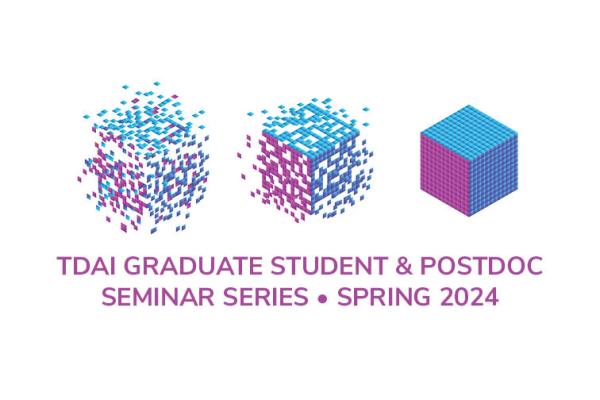
Michael Menart (Computer Science & Engineering)
Advisor: Raef Bassily
Title: The Role of Public Data in Private Machine Learning: Power and Limitations
Abstract:
Differentially privacy is a widely accepted standard for protecting the privacy of individuals whose data is leveraged in statistical data analysis or machine learning. Despite this widespread success, differential privacy has been shown to lead to fundamental bottlenecks in achievable accuracy for many problems. More specifically, guaranteeing differential privacy usually leads to some accuracy penalty proportional to the problem dimension. As a result, an increasingly active field of research involves leveraging public data in tandem with private data with the hope of avoiding these bottlenecks. In this talk, I will first discuss the fundamental limits of using public data on problems such as mean estimation and stochastic convex optimization. Our new results show a severe limitation on the use of public data for such problems. Next, as a counterpoint, I will discuss new results in convex supervised learning, which show that unlabeled public data can be used to almost entirely remove the cost of ensuring differential privacy. These results are based on join work with Enayat Ullah, Raman Arora, Raef Bassily, and Cristóbal Guzmán.
Sal Hargis (Integrated Systems Engineering)
Advisor: Martijn Ijtsma
Title: Disaster Response Robotics: Computational Modeling of Join Activity Using Graph/Network Theory
Abstract: Robots are being deployed in a variety of safety critical domains to extend the capabilities of humans, especially in the disaster response domain where the environment poses significant threat to human life. However, the deployment of robots has been limited due to the inadequate design of human-robot teaming, which results in heightened cognitive load on human operators. By using a graph and network approach to modeling human-robot teamwork, a better understanding of multi-agent human-robot teams can be developed to identify areas of potential coordination overhead and mitigate them, increasing the effectiveness of teams with agents possessing different coordination needs and functional capabilities.
*
TDAI's Foundations of Data Science & AI CoP directors are organizing a graduate student and postdoc seminar series this spring semester over several weeks on Wednesdays, 2:30-4:00 p.m., in 301 Pomerene Hall, beginning March 20. Each week, TDAI will host 3-4 speakers who will present for 20-25 minutes with additional time for questions and feedback. The organizers hope this will be a great opportunity for the whole TDAI community to learn about each other's work, help one another refine their presentation skills, and find potential collaborators.
Graduate student or postdoctoral fellows: if you are working with a faculty member affiliated with TDAI, TDAI would love to hear from you about your research. If you are interested in speaking at the series, please email the CoP directors below with a title and abstract of your proposed talk. The directors will select a few proposed talks based on the availability of speaker slots, and if yours is selected, they will get back to you with an invitation. As an interdisciplinary group, TDAI is open to a broad range of topics related to data science and AI.
Current open slots: Wednesdays 2:30 PM - 4:00 PM on the following days: March 20, March 27, April 3, April 10, and April 17. Please mention in your email if there is a date that you wouldn't be able to present.
When you submit your title and abstract, please use the subject line "TDAI Graduate/Postdoc Seminar Series" for your email and send to all of the following addresses: Subhadeep Paul (paul.963@osu.edu), Huan Sun (sun.397@osu.edu), Raef Bassily (bassily.1@osu.edu).
